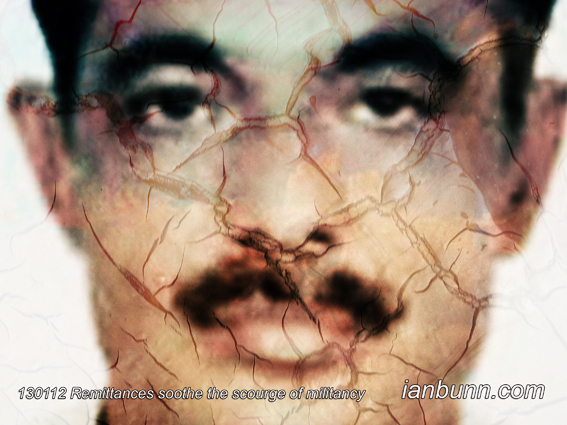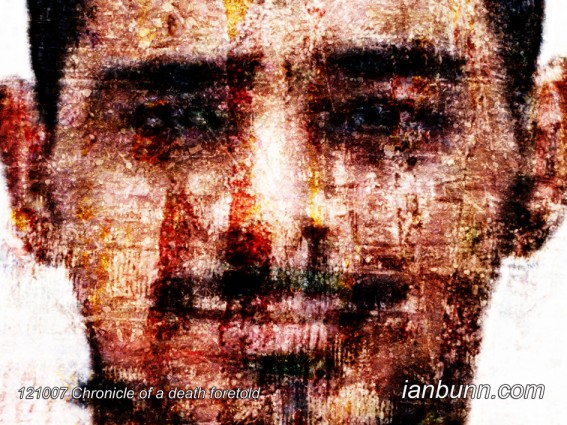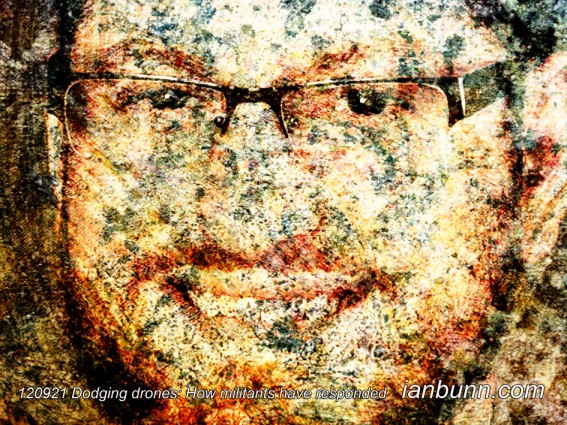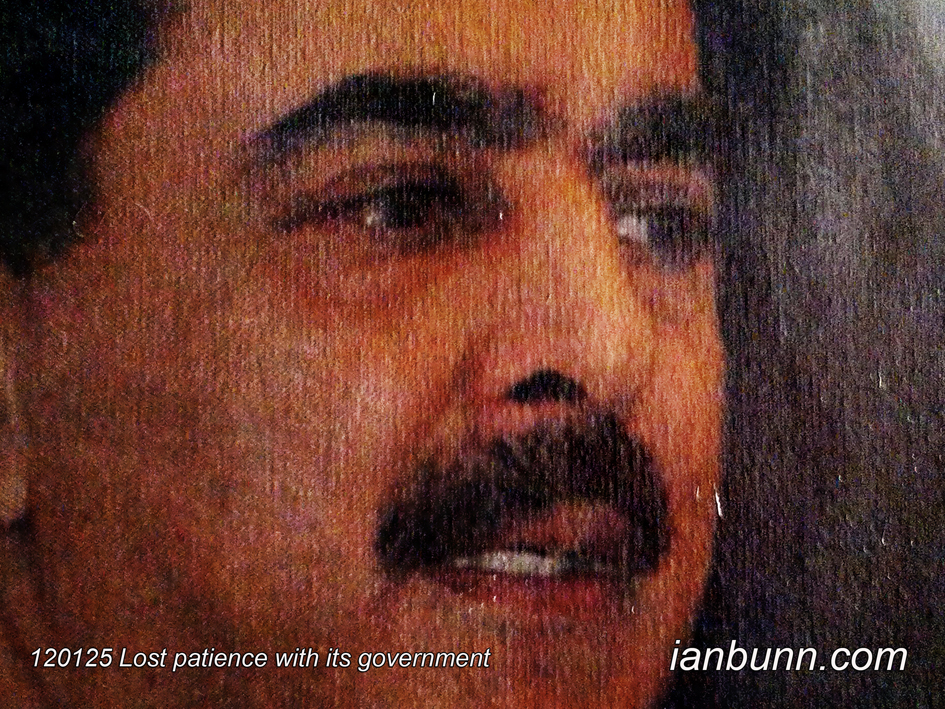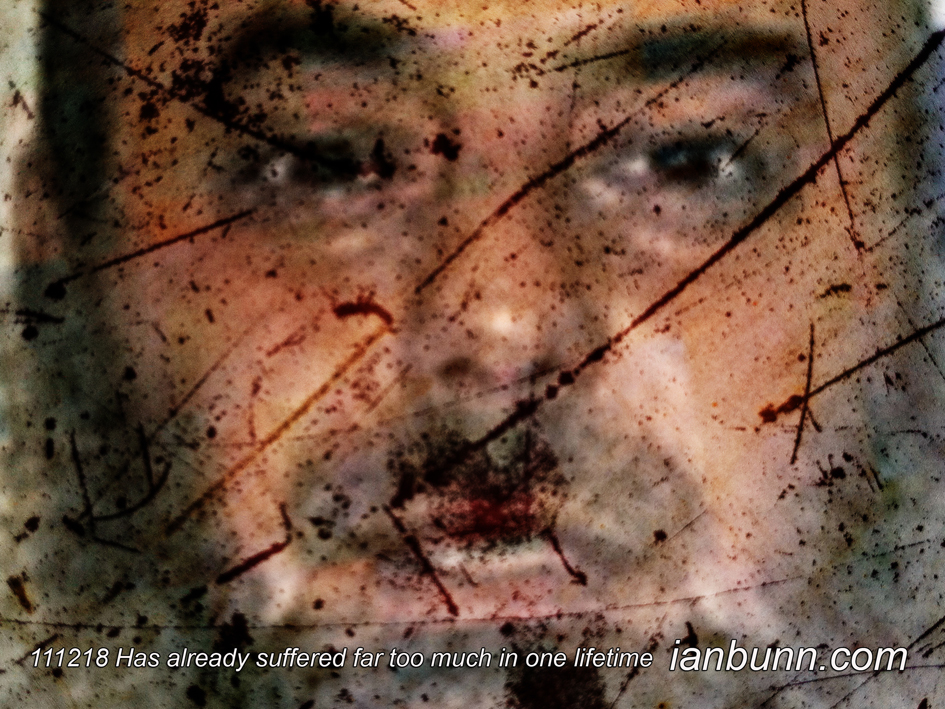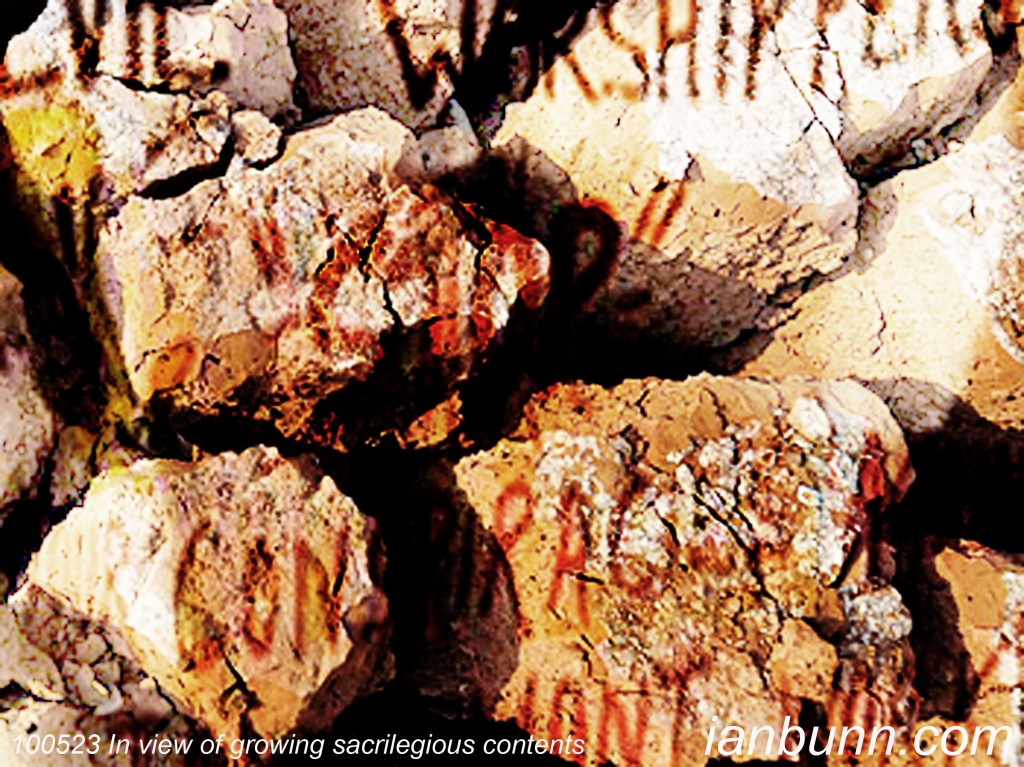 I don’t think anybody can excuse that (March 4 2013)
I don’t think anybody can excuse that (March 4 2013)
Omar Deghayes the 43 year old Libyan with residency status in the UK, having been arrested in Pakistan in 2002 and taken into US military custody, was sent onto Guantanamo Bay detention camp where he was blinded permanently in one eye after a guard used fingers to gouge his eyes. Deghayes had moved temporarily to Pakistan with his Afghan wife and child, where he was arrested along with his family by bounty hunters in Pakistan and taken to the Bagram Internment Facility, prior to being sent onto Cuba. His wife and child were later released. Deghayes states “…troops marched into his cellblock ‘singing and laughing’ before spraying his face with mace and digging their fingers into his eyes as an officer shouted ‘More! More.’ …My eye has gone a milky white color… Matt Sledge in an article for Huffington Post states “…spending six years in Guantanamo. He was never charged with or convicted of any crime, but it took strenuous pressure from United Kingdom authorities to win his release during the waning days of the Bush administration. Since then he has transformed himself into an anti-Guantanamo campaigner in the UK. He has mixed feelings about the camp’s recently passed 11th anniversary. “To an extent it’s good because it does make people aware that Guantanamo still exists,” Deghayes said. But for Deghayes the anniversaries take on a more personal meaning than an excuse for speech making or press releases. …whenever such an anniversary rolls around, “All this comes back to memory, the mistreatment there.” Obama, he said, has been “a real big disappointment to many of the human rights groups and people who care about justice.” “Look at the people who committed all the crimes before Obama. He said let’s look forward and we don’t want to bring justice. That’s turning a blind eye, I don’t think anybody can excuse that.”
Inspired by Matt Sledge, Huffington Post ow.ly/hYADV Image source Tobias Klenze ow.ly/hYAqg
![Fawzi [Fouzi] Khaled Abdullah Fahad Al Odah the 35 year old Kuwaiti citizen and teacher held in the US Guantanamo Bay detainment camp in Cuba for the past 11 years without charge has been featured in the New York Times. Fawzi traveled to the Pakistan/Afghanistan border area in order to undertake charitable outreach work. Following the September 11, 2001 attacks, Fawzi fled Afghanistan, intending to return home to Kuwait, however having crossed the border into Pakistan he was captured by Pakistani bounty hunters who handed him along with eleven other Kuwaitis over to American authorities. The Kuwait Freedom Project established to seek the release of Fawzi and other Kuwaiti detainee’s reports that Fawzi spent his summers traveling in poor nations to educate less fortunate students, and along with his family have built libraries and wells in Africa. They’ve sponsored orphans in countries including Albania. Fawzi has not had any weapons training or experience, writing to his parents in 2002 stating, “Now I am detained by the American forces and investigations are still going on…I will be established as innocent soon, and then I will return back to you…” Fawzi’s father, Khalid Al-Odah, is the head of the Kuwaiti Family Committee, an organization formed by relatives of the detainees to advocate for their just treatment under the U.S. judicial system. The elder Al-Odah is a former member of the Kuwaiti Air Force, who trained with American servicemen in the United States and flew missions with them as an ally in the Persian Gulf War of 1991. … The U.S. Government contends that Fawzi’s true purpose in Afghanistan was to join the Taliban and al Qaeda referring to "additional incriminating evidence" discovered since his capture, however the nature of that evidence is redacted in the unclassified version…” Inspired by Project Kuwaiti Freedom ow.ly/hMvRJ Image source Wikipedia ow.ly/hMvQa](http://www.ianbunn.com/wp-content/uploads/2013/02/130226dcU60.jpg)

